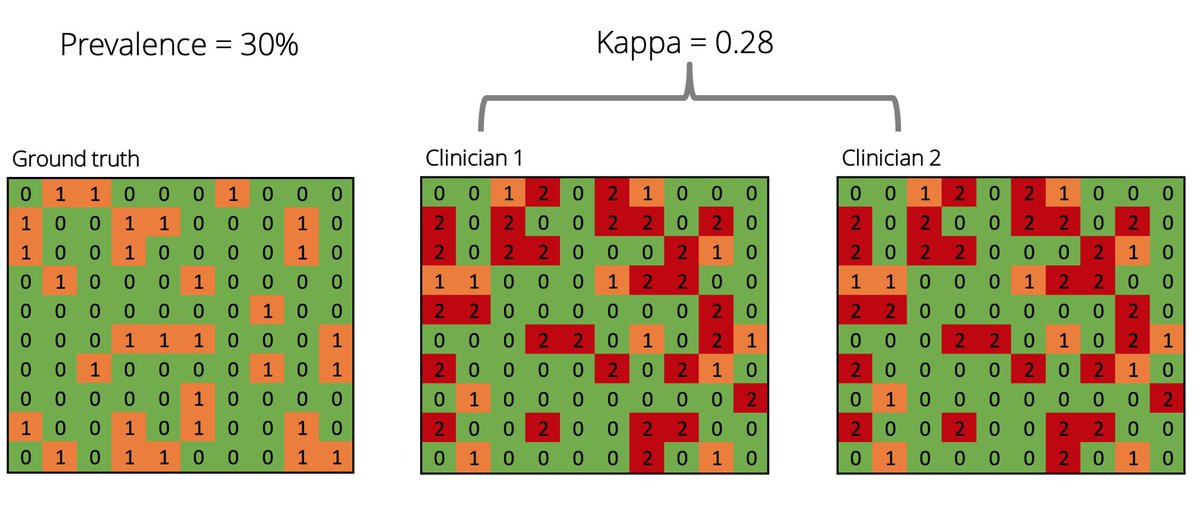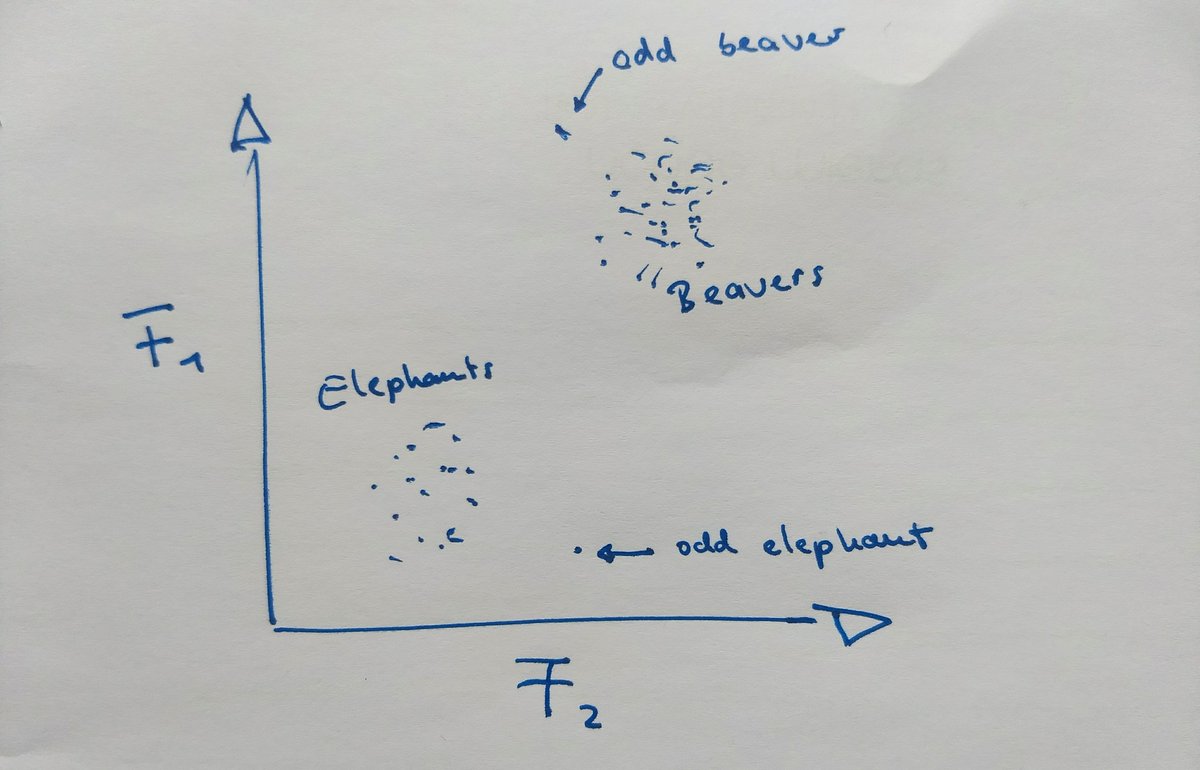
Brief comment on the new "breakthrough study" on #depression blood tests. 🧵
TLDR: there is no blood test for depression.
neurosciencenews.com/depression-bip…
TLDR: there is no blood test for depression.
neurosciencenews.com/depression-bip…
1/ A test helps to determine whether you have a feature or not.
Good tests are precise: they predict a feature well, have high sensitivity/specificity, & low false positives/negatives.
Good tests are precise: they predict a feature well, have high sensitivity/specificity, & low false positives/negatives.
2/ Precise biological tests do not exist for the most common mental disorders. There are some weak biological correlates for depression, but a weak correlate is not a test, the same way that a weak correlate of COVID (coughing) is not a test for COVID.
3/ How does this depression blood test do in terms of predictive accuracy?
The abstract of the paper has 773 (sic) words, 0 of which are about precision. No information on predictive accuracy, sensitivity/specificity, false positives/negatives, etc.
That's not good.
The abstract of the paper has 773 (sic) words, 0 of which are about precision. No information on predictive accuracy, sensitivity/specificity, false positives/negatives, etc.
That's not good.
4/ Good tests have a second feature: they are specific to what we want to test. A COVID test should specifically test for COVID, not for the flu or for cancer.
I describe these 2 features of good tests (and some others) here:
eiko-fried.com/all-mental-dis…
I describe these 2 features of good tests (and some others) here:
eiko-fried.com/all-mental-dis…
5/ Overall, any paper about a blood test for depression requires evidence that the test correctly identifies depressed vs control cases (or, dimensionally, depression severity); and that it does *not* do so for e.g. anxiety or schizophrenia (otherwise it's not a depression test).
6/ Remember that the gold standard that blood tests are validated against is depression *as operationalized through a clinician's opinion*.
This is different from e.g. measles where we can know the true state of things to validate tests against (we cannot for depression).
This is different from e.g. measles where we can know the true state of things to validate tests against (we cannot for depression).
7/ Simplified, if you have a really strong correlation of a test with the true state of measles (and not with that of the flu etc), then you have a good test.
This isn't possible, mathematically, for depression, because people disagree on the true state of depression.
This isn't possible, mathematically, for depression, because people disagree on the true state of depression.
8/ Agreement on the true state of depression (inter-rater reliability) was 0.28 in DSM-5 field trials. That is much, much, much lower than for many medical disorders, and about half of that of e.g. borderline personality disorder.
9/ Let me know you how 0.28 looks like.
On the left side is the true state for 100 people: 1/orange is depressed, 0/green is healthy.
On the right side, 2 clinicians see these patients, with an inter-rater reliability of 0.28.
Red fields = disagreements.
On the left side is the true state for 100 people: 1/orange is depressed, 0/green is healthy.
On the right side, 2 clinicians see these patients, with an inter-rater reliability of 0.28.
Red fields = disagreements.

10/ So not only does this paper not provide a precise and specific test for depression; in my view, it *cannot* do that because the criterion is not clear.
This is why the author's goal to help psychiatry "become like other contemporary fields such as oncology" is odd to me.
This is why the author's goal to help psychiatry "become like other contemporary fields such as oncology" is odd to me.
11/ And while the authors mention their company in the paper's COI, it is worth stating that they may try to sell these tests (I have no principled concerns about this, but seems worth pointing out for transparency reasons given that it's not mentioned in the uni press release) 

12/ I'll conclude with some more reading in case you are interested in the above.
First, here is a thread about depression heterogeneity, with a bunch of papers. This heterogeneity greatly limits the possibilities of blood tests and markers.
First, here is a thread about depression heterogeneity, with a bunch of papers. This heterogeneity greatly limits the possibilities of blood tests and markers.
https://twitter.com/EikoFried/status/935098850439847937
13/ We summarized these issues recently for the genetics literature, with @caina89 @karmelchoi.
If we don't have a clear phenotype, we cannot find strong correlates of that phenotype.
academic.oup.com/hmg/article/29…
If we don't have a clear phenotype, we cannot find strong correlates of that phenotype.
academic.oup.com/hmg/article/29…
14/ That different measures of depression measure different things (many of which may be equally valid) is summarized in a recent piece with @pravpatalay.
acamh.onlinelibrary.wiley.com/doi/full/10.11…
acamh.onlinelibrary.wiley.com/doi/full/10.11…
15/15 Overall, the authors did tons of amazing & very sophisticated work, over many years, & deserve our praise. The field would be much poorer without them & their contributions.
But they have not developed a reliable & precise blood test for depression.
But they have not developed a reliable & precise blood test for depression.
• • •
Missing some Tweet in this thread? You can try to
force a refresh




